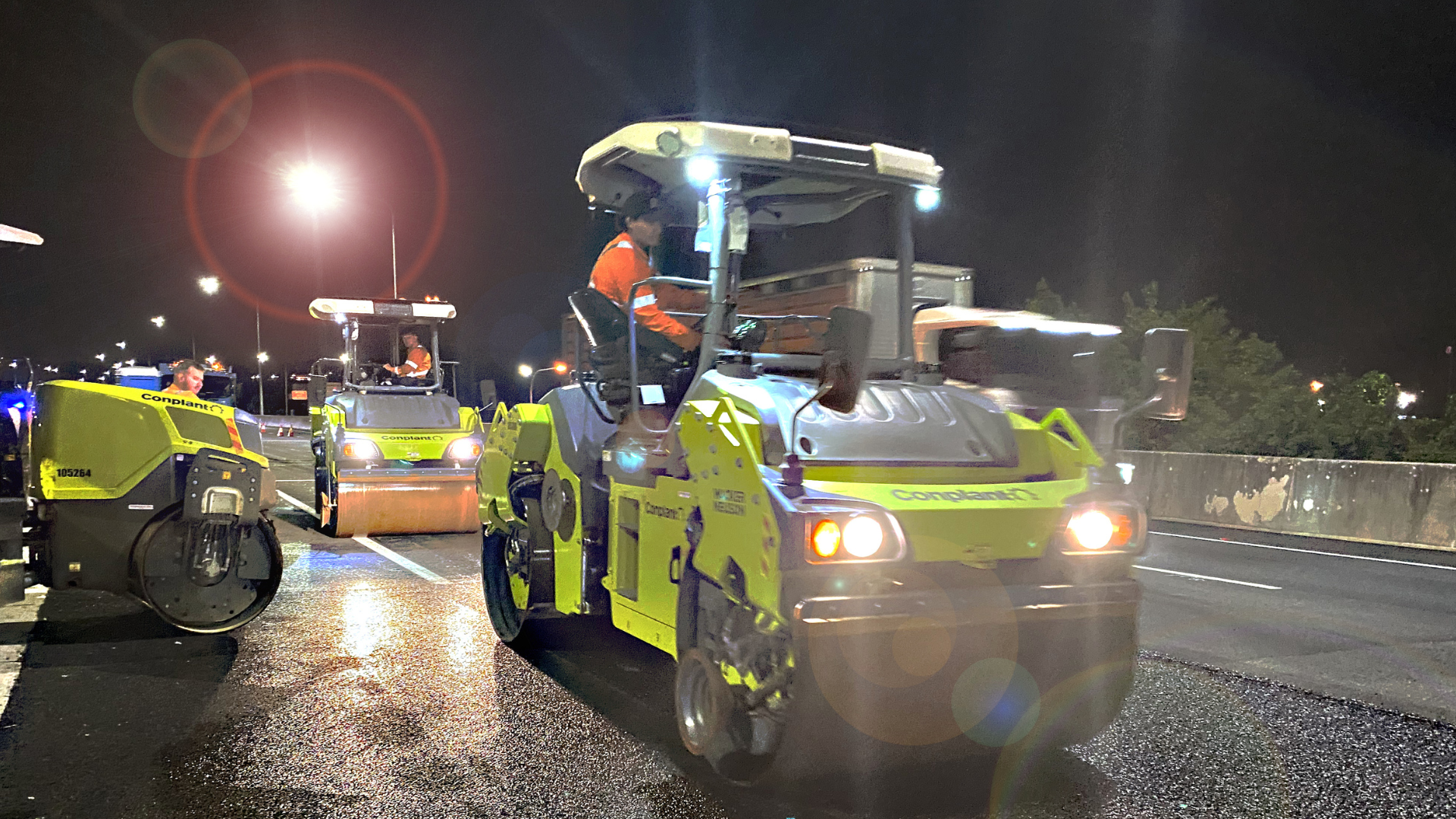Experience Quality Compaction with Oscillation Technology
With plenty of civil works taking place in noise-sensitive or structurally-sensitive areas, many construction companies are looking for alternatives to better suit the unique environment they are working in. And it turns out there is a great solution that can produce high-quality yet cost-effective compaction for construction and bulk earthworks — oscillation technology.
There are several advantages to using oscillation compacting machinery over standard vibratory rollers, particularly if you are working in areas:
- Where sensitive remediation works are required
- Where there are underground essential services
- Or near bridges and railways
In these cases, you run less risk of damaging these services, due to oscillation rollers not using a vibrating action. They also produce a lot less noise and there is also a lower fuel burn on many soil types. The noise reduction allows for better working in CBD and residential areas, while the lower fuel burn allows you to save on your budget.
So, is an Oscillation Roller the best compactor for you? Let’s take a bit of a deeper look at the differences between oscillation and vibratory rollers.

The difference between Vibratory Rollers and Oscillation Rollers
One of the big downsides to vibratory rollers is the risk of over-compaction. To overcome this challenge oscillation rollers were invented in Germany, back in 1983. This shift in technology allowed for less energy transfer into surrounding structures and the infrastructure below the layer being worked on — as well as a significantly higher quality compaction.
What does this mean for you? You get a better finish on your project, without disturbing those in the surrounding areas with ground vibrations and high noise levels. It also allows you to work in sensitive areas without the high risk of damage that exists with vibratory rollers.
So, what are the main differences between the two types of rollers?
In the traditional vibratory rollers, a vibrating drum moves up and down swiftly, compacting the material through the pressure applied by the drum. On the flip side, the oscillation roller has a drum with two shafts fitted at a 180-degree angle to each other, causing the drum to rotationally move forwards and backwards rapidly. Because the rotational movement ensures that the drum is always in contact with the surface, you end up with a better compaction (faster), allowing you to move on with the job quicker.
The forwards-backwards movement allows for the earth to be compacted through a massage like movement, redistributing particles in a non-aggressive manner, and because that drum is in contact with the ground constantly, you get a more even surface over a bigger distance without irregularities or damage.

Advantages of using Oscillation Rollers
We’ve already touched on some advantages of using Oscillation Rollers but there’s a long list of reasons why the civil construction industry is using them more often.
- Less disturbance when working in built-up or sensitive areas
- Maintenance-free drums due to high wear resistant steel and temperature-resistant belts
- Lower fuel burn on selected sites
- Constant contact with the ground
- Cold compaction of joints without damaging the asphalt
- A better degree of compaction in less time
- Less occurrence of over-compaction
- Better performance in low temperature areas (can perform in a range of temperatures)
- Self-regulating so no constant adjustments taking up time
- Less vibration means more comfort to the driver and more protection to parts
- Environmentally friendly option
Let’s take a look at what types of sites will benefit from the use of Oscillation Rollers…

When to use an Oscillation Roller
Oscillation offers a gentler compaction method, which means that these rollers are best used:
- In tight or smaller spaces
- Near bridges, railways, city utilities
- In city areas and during night works
Essentially in any location that requires sensitivity towards noise and the reduced chances of damage. They are also beneficial if you work in areas where you might find old pipes, cables, or underground facilities that risk being damaged from vibration. Many operators will also use these rollers in cooler areas or when working on joint compaction on asphalt roads — as an Oscillation Roller squeezes the material down compared to a vibratory roller which will essentially crush the cold joint.
If your next civil construction job requires a more delicate touch, speak to the team at Conplant. We’ve been Australia’s leading compaction experts since 1961, so we know what works. We’ll help you increase productivity, reduce downtime, and meet your deadlines faster.
Contact us on 1300 166 166 or pop into one of our branches to have a chat!




